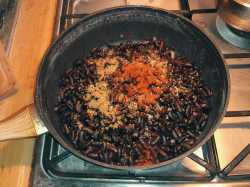>>18167624>the bean pillI already took it.
https://www.toxinless.com/ray-peat-the-bean-syndrome.pdfThe Bean Syndrome
An extract of the common bean (phytohaemagglutinin, PHA) is widely used in research, and has been used occasionally in medicine. The effects of bean toxin, and other plant toxins (e.g., pokeberry) overlap in several ways with viral infection and autoimmune disease. PHA causes, for example, the appearance of large mononuclear cells in the blood, the suppression of DNA synthesis in thymic cells, a slight leucopenia, and hepatic necrosis. Extracts of lentils, broad beans, and fenugreek (used in curry) are as active as PHA, and extracts of common peas, chick peas, lupinus, and onions beans also have some activity. The effects of a single exposure (such as eating a pokeberry) can remain microscopically visible for two weeks.( 1) In aging, stress, and malnutrition, the barrier function of the intestine is weakened. Vitamin A and magnesium deficiencies allow macromolecules to enter the blood from the intestine.( 2) Injury to the bowel causes "flu-like" symptoms. There have been reports that the viruses of "respiratory diseases" appear in the intestine before they appear in the respiratory tract. Alvarez found that "when a dog gets distemper the gradient of latent period down its small bowel is reversed," and he suggests that in a cold "a systolic, non-progressive type of contraction appears." He says codeine is the best medicine to block a cold. (I have argued that it is vitamin C's laxative action which can interrupt cold symptoms.) Recent research shows that naloxone, the morphine antagonist, can restore normal responses to the stressed bowel. Alvarez was interested in chronic fatigue and "painful fatigue," and remarked that occasionally "a fatigue state will follow a bout with some infection such as influenza."( 3)

